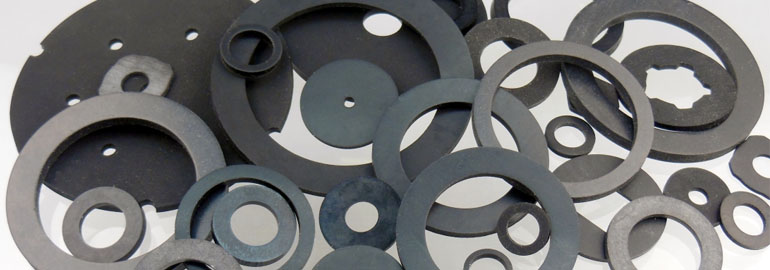EPDM (Ethylene Propylene Diene Monomer) rubber seals, often simply referred to as EPDM seals, are specialized sealing components made from EPDM rubber material. These seals are used in various industries and applications to create effective seals, providing resistance to environmental factors, durability, flexibility, and resilience. Here are key aspects of EPDM rubber seals:
Properties of EPDM Rubber:
EPDM rubber possesses several properties that make it well-suited for sealing applications:
- Weather Resistance: EPDM rubber is highly resistant to weathering, UV radiation, ozone, and extreme temperatures, making it ideal for outdoor and exposed applications.
- Chemical Resistance: EPDM rubber is compatible with a wide range of chemicals, including acids, bases, and many solvents, making it suitable for various industrial environments.
- Temperature Resistance: EPDM rubber has a broad temperature range and can perform well in both high and low-temperature conditions. It can withstand temperatures ranging from -40°C (-40°F) to 125°C (257°F) or even higher, depending on the specific formulation.
- Flexibility: EPDM rubber is known for its flexibility and ability to maintain its elasticity over time, even after prolonged exposure to heat and UV radiation.
- Water Resistance: EPDM rubber provides excellent resistance to water and moisture, making it suitable for sealing applications where preventing water ingress is crucial.
Functions of EPDM Rubber Seals:
EPDM rubber seals serve several key functions in various industries and applications:
- Sealing: The primary function of EPDM rubber seals is to create reliable and watertight seals between two mating surfaces. This prevents the leakage of fluids, gases, or contaminants and maintains the integrity of the sealed system.
- Insulation: EPDM gaskets can be used to provide thermal and electrical insulation between components.
- Vibration and Sound Damping: EPDM rubber’s flexibility and elasticity make it effective for dampening vibrations and reducing noise in mechanical systems.
- Impact Absorption: In some applications, EPDM seals can absorb impacts or shocks, protecting components from damage.
Common Applications:
EPDM rubber seals find application in various industries and settings, including:
- Automotive: EPDM rubber seals are used in automotive applications such as door seals, window seals, and under-the-hood gaskets due to their resistance to automotive fluids and temperature extremes.
- Construction: EPDM seals are used in construction for sealing windows, doors, roofing, and curtain wall systems.
- HVAC (Heating, Ventilation, and Air Conditioning): EPDM seals are used in HVAC systems to create airtight seals in ductwork, dampers, and other components.
- Electronics: EPDM rubber seals provide weatherproofing and protection for electronic enclosures, safeguarding electronic components from environmental factors.
- Marine: EPDM rubber seals are used in marine applications for sealing hatches, portholes, and other openings on boats and ships.
- Industrial Equipment: EPDM seals are employed in various industrial equipment and machinery to create seals in pumps, valves, and other components.
- Water and Wastewater Treatment: EPDM seals are used in water treatment plants and wastewater facilities for sealing pipes, valves, and tanks.
- Aerospace: EPDM seals can be used in aerospace applications for their resistance to temperature extremes and chemicals.
Proper selection and installation of EPDM rubber seals are essential to ensure their effectiveness in sealing and protecting components and systems in different applications. These seals are available in various shapes, sizes, and thicknesses to meet specific sealing requirements.






